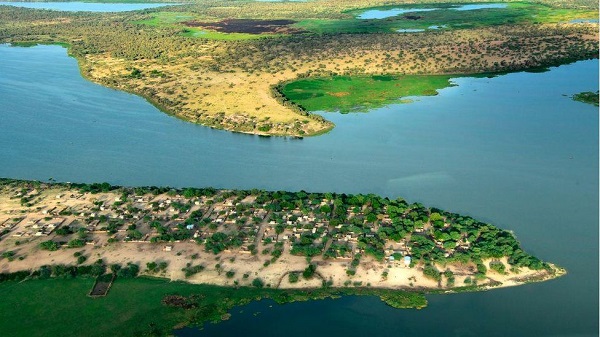
Nigeria’s planned accession to UN Water Convention could be a tipping point for cross-border water cooperation, contributing to security, climate adaptation and sustainable development in the Lake Chad and Niger basins.
Speaking at the ongoing national workshop on the Convention on the Protection and Use of Transboundary Watercourses and International Lakes taking place in Abuja from July 27-29, 2022, the Minister of Water Resources, Engr. Suleiman H. Adamu said Nigeria has taken a significant step towards ensuring the sustainable management of its cross-border waters with a milestone commitment to join and implement a United Nations treaty known as the ‘Water Convention’.
“As the most populous country in Africa where the majority of our over 206 million people depend on water that we share with neighbouring countries, Nigeria attaches significant importance to transboundary water cooperation. Nigeria, this week, will commit to a road map for its accession to and future implementation of the United Nations Water Convention.
“The government of Nigeria encourages all nations with which it shares water resources to accede to the Water Convention and ensure its full implementation. This offers a crucial means for us to work together to strengthen the foundations for peace, stability and sustainable development in the Lake Chad and Niger basins, for the mutual benefit of our populations and natural environment,” he said.
UN Secretary-General António Guterres called on all Member States to join the convention and ensure its full implementation, stressing that “the 1992 Water Convention is a powerful tool to advance cooperation, prevent conflicts and build resilience”. Today, it has 46 parties worldwide.
A statement by the United Nations Economic Commission for Europe (UNECE) said the Water Convention, whose secretariat is serviced by UNECE, is a unique and widely accepted intergovernmental legal framework. It requires parties to prevent, control and reduce negative impacts on water quality and quantity across borders, to use shared waters reasonably and equitably, and to ensure their sustainable management through cooperation. Parties bordering the same transboundary waters are obliged to cooperate by concluding specific agreements and establishing joint bodies.
Nigeria shares at least one transboundary water body with each of its neighbouring states. The Lake Chad Basin is the largest inland drainage area in Africa and covers an area of 2,434,000 km2, equal to 8 per cent of the total area of the African continent. The basin extends through Algeria, Cameroon, Niger, Nigeria, Central Africa Republic, Chad and Sudan. In Nigeria, the basin drains about 20 per cent of the country. Damming, over-extraction, climate change and drought are all contributing to the rapid depletion of Lake Chad, which has decreased in size by 90 per cent over the last 60 years. This has led to significant unemployment and insecurity challenges in the region.
Also, Nigeria is home to about 80 per cent of the 100 million people residing in the basin of the Niger river which crosses Algeria, Benin, Burkina Faso, Cameroon, Cote d’Ivoire, Guinea, Mali, Niger, Nigeria and Chad before emptying through the Gulf Guinea into the Atlantic Ocean.
With these shared waters increasingly threatened by water scarcity linked to climate change, pollution and rising demands on their use, “transboundary water cooperation is crucial for peace, conflict prevention, sustainable development and human well-being. This is particularly relevant in regions such as the Lake Chad and Niger basins where water is closely related to security, livelihoods and regional stability. As an effective global legal and intergovernmental framework and platform for cooperation and sustainable management of shared waters, including groundwaters, the Water Convention helps countries to address key challenges”, stressed the secretary of the Water Convention, Ms. Sonja Koeppel.
Nigeria’s accession would help consolidate the fast-building momentum for water cooperation in Africa and, given its role as the largest economy in Africa and position in key shared basins, prove a catalyst for more countries to join and reap the benefits of implementing the Water Convention.
Chad, Senegal, Ghana, Guinea-Bissau and Togo joined the Convention in 2018 following its opening to accession by all UN Member States. Cameroon is on the cusp of becoming a party, following its president’s signature on accession earlier this month. More than 15 countries are in the process of joining, most of which are in Africa. Nigeria’s accession could be particularly crucial as, together with Cameroon, it would help reach a critical mass of Water Convention Parties in the region that share the same water resources.
As well as providing a legal basis for cooperation that benefits peace, stability, economic growth and sustainable development more broadly, it also provides a robust basis – supported by International Financial Institutions – to help mobilize financing and de-risk investments for climate change adaptation in shared basins.


